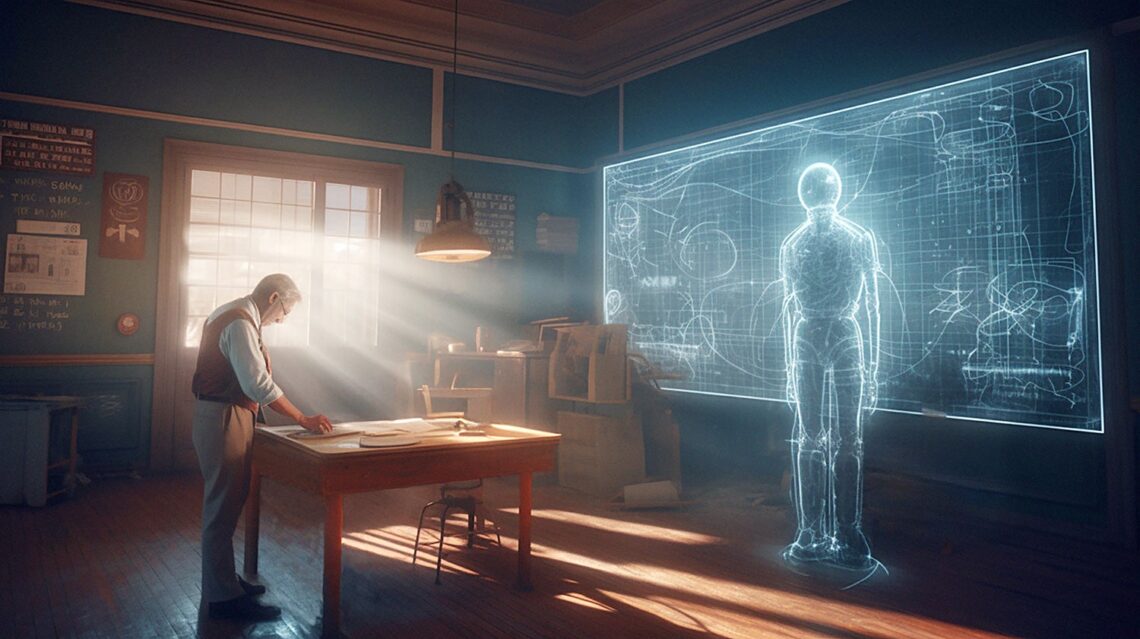IN THE SUMMER of 1956, a small group of computer science pioneers convened at Dartmouth College to discuss a new concept: artificial intelligence. The vision, in the meeting’s proposal, was that “every aspect of learning or any other feature of intelligence can in principle be so precisely described that a machine can be made to simulate it.” Ultimately, they presented just one operational program, stored on computer punch cards: the Logic Theorist.
Many have called the Logic Theorist the first AI program, though that description was debated then—and still is today. The Logic Theorist was designed to mimic human skills, but there’s disagreement about whether the invention actually mirrored the human mind and whether a machine really can replicate the insightfulness of our intelligence. But science historians view the Logic Theorist as the first program to simulate how humans use reason to solve complex problems and was among the first made for a digital processor. It was created in a new system, the Information Processing Language, and coding it meant strategically pricking holes in pieces of paper to be fed into a computer. In just a few hours, the Logic Theorist proved 38 of 52 theorems in Principia Mathematica, a foundational text of mathematical reasoning.
The Logic Theorist’s design reflects its historical context and the mind of one of its creators, Herbert Simon, who was not a mathematician but a political scientist, explains Ekaterina Babintseva, a historian of science and technology at Purdue University. Simon was interested in how organizations could enhance rational decision-making. Artificial systems, he believed, could help people make more sensible choices.
“The type of intelligence the Logic Theorist really emulated was the intelligence of an institution,” Babintseva says. “It’s bureaucratic intelligence.”
But Simon also thought there was something fundamentally similar between human minds and…
Read the full article here

